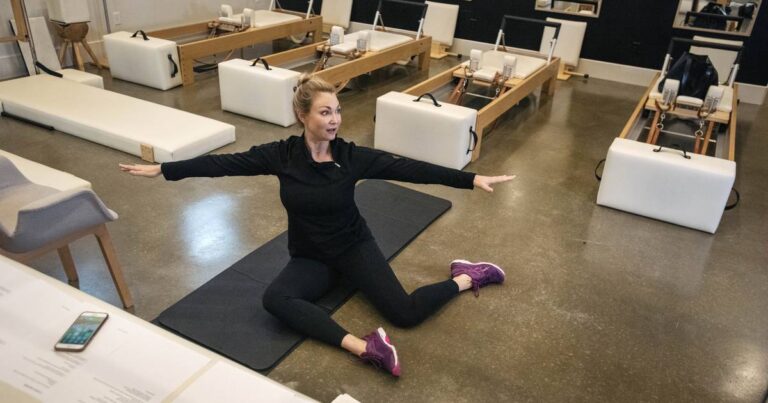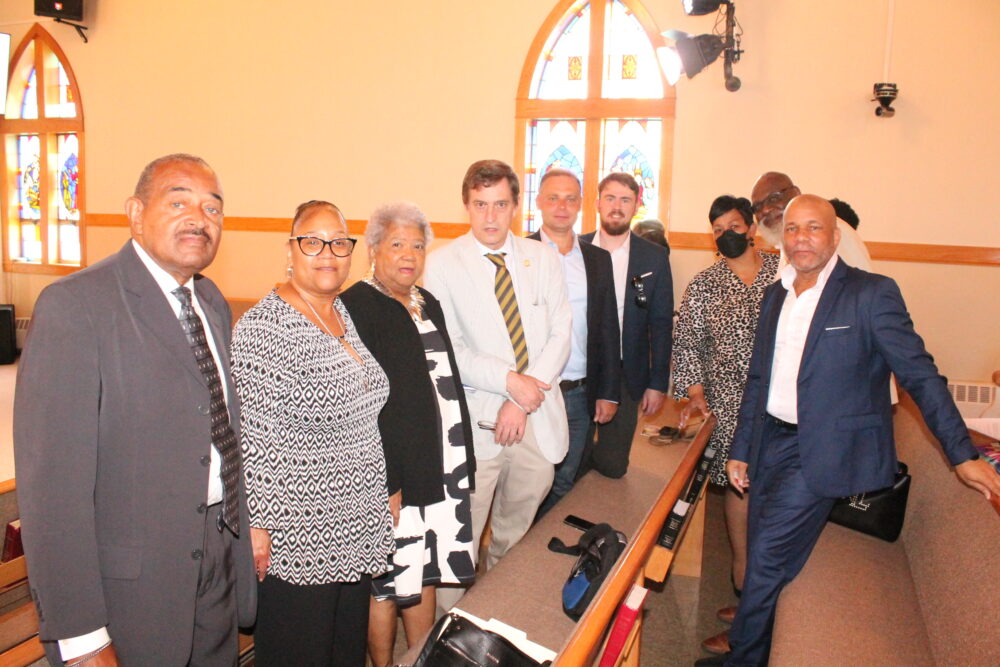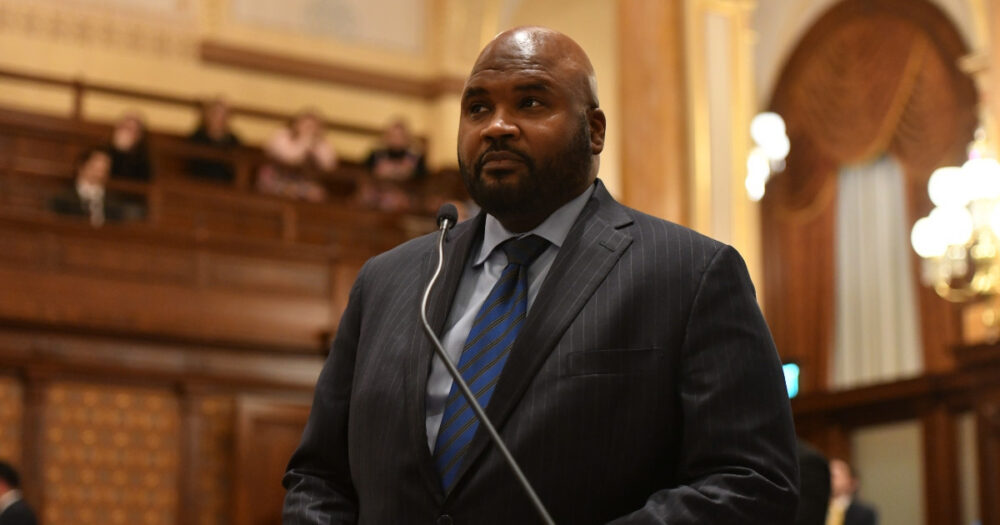WASHINGTON — Many Americans don’t expect to rely on the digital services that became commonplace during the pandemic after COVID-19 subsides, according to a new poll, even as many think it’s a good thing if those options remain available in the future.
Close to half or more of U.S. adults say they are not likely to attend virtual activities, receive virtual health care, have groceries delivered or use curbside pickup after the coronavirus pandemic is over, according to a poll from The Associated Press-NORC Center for Public Affairs Research. Less than three in 10 say they’re very likely to use any of those options at least some of the time.
Advertisement
Still, close to half also say it would be a good thing if virtual options for health care, for community events and for activities like fitness classes or religious services continue after the pandemic.
“Rather than this either-or, I think we’re more likely to be facing a hybrid future,” said Donna Hoffman, director of the Center for the Connected Consumer at the George Washington School of Business. “People have found convenience in some of these virtual options that just makes sense, and they don’t necessarily have anything to do with like keeping you safe or the pandemic even though they came of age during the pandemic.”
Advertisement
Digital daily routines became the default in 2020 as the nation reacted to the rapidly spreading virus, which prompted lockdowns, closed schools and shuttered businesses. Some substitutions, like online shopping and video conference calling, already existed. Others were reimagined or popularized during the pandemic.
Either way, Hoffman said, there was “rapid” deployment and adoption of virtual services. It was a question of “how are we going to make this work?” she said.
Cornelius Hairston said his family took precautions throughout the pandemic because his wife is a first responder in the health care field.
“We tried to stay in as much as we could and only come out for essentials,” said Hairston, 40, who recently moved to Roanoke, Virginia.
Hairston joked that his twin 4-year-old boys are “COVID babies” who didn’t even go to a grocery store for much of their young lives. The family used delivery services almost exclusively to avoid venturing out to crowded stores. But going forward, he only expects to use them “from time to time.”
For Angie Lowe, the convenience of telemedicine and time saved was reason enough to do it again even though she and her husband returned to doing things in public more than a year ago.
Lowe had her first telemedicine appointment early in the pandemic when feeling “lonely” and “stuck at home” kept her from sleeping well. She was able to talk with the doctor without having to take extra time off of work to drive to and wait in a medical center.
“It was my first telemedicine appointment, but it won’t be my last,” said Lowe, 48, of Sterling, Illinois. “If I can do it, I’m going to do it.”
Advertisement
For many, though, drawbacks outweigh the benefits of relying on digital services in the future. Adults age 50 or older are especially likely to say they are not planning to use the virtual options asked about on the poll going forward, even though many were introduced during the pandemic to protect the at-risk population.
Despite feeling antsy about COVID-19 and infection rates in Phoenix, Tony DiGiovane, 71, said he found curbside pickup at grocery stores and restaurants to be more hassle than they’re worth.
“By the time I picked up the stuff, I needed more stuff,” he said of his grocery orders, and “something’s always missing or wrong” on takeout orders.
Karen Stewart, 63, recognizes the benefits of video calls, but she’s also found them to be limiting. That’s the case in her job organizing after school programming for kids. She also now sees some of her doctors online, one who provides virtual care almost exclusively and another who uses virtual care in between office visits.
She likes that she doesn’t have to drive, but it means a doctor or nurse can’t take her vitals or be “hands on” in her care. It was “scary,” for example, when all of her appointments in the lead-up to a surgery were online, she said.
“When I do that they they can’t take my blood pressure, my pulse. There’s things that a doctor might pick up on that they can’t see online,” said Stewart of Perris, California.
Advertisement
The pandemic created an opportunity to balance in-person and virtual services to support the physical and mental health of older adults, said Alycia Bayne, a principal research scientist at NORC. That “could be particularly beneficial to older adults with different health issues, mobility limitations, people who lack transportation options, people who do not have or live near a robust social networks like family and friends to lean on,” she said.
Still, there remain limitations with technology access, broadband access and digital literacy, which Bayne said may help explain why the poll finds older adults less likely to use digital services after the pandemic.
Despite the age gap on use of services, similar percentages of adults across ages say it’s a good thing for virtual options for health care, for community events and meetings and for activities to continue after the pandemic.
“They recognize the benefits of virtual services, but they’re also ready to start getting back to their pre-pandemic routines,” she said. “The silver lining, of course, is that these services are now available.”
The poll of 1,001 adults was conducted May 12-16 using a sample drawn from NORC’s probability-based AmeriSpeak Panel, which is designed to be representative of the U.S. population. The margin of sampling error for all respondents is plus or minus 4 percentage points.
Rico reported from Atlanta.







